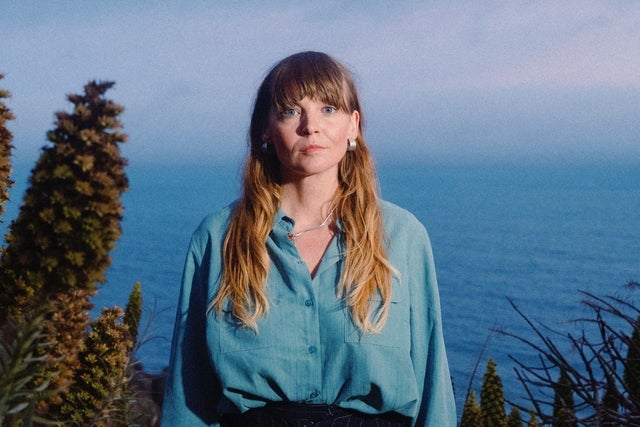From her very first recordings, to her 2016's breakthrough Honest Life, to 2020's Grammy nominated Old Flowers and her most recent Loose Future, Andrews has been celebrated as an artist who challenges herself, and who finds new interplays of Folk and Americana. "As a songwriter you can make the same record over and over again," Andrews says, "and I'm not interested in that. I make records to stand alone and stand apart from each other." Co-produced with Jerry Bernhardt and recorded almost entirely to tape, Valentine features complete in-studio performances, hinging on performance rather than perfection. "We thought a lot about Lee Hazlewood, about Big Star's Third and Fleetwood Mac's Tusk" says Andrews, and that constellation of stars is apparent here. Valentine feels elegant, disciplined and balanced but never cold, always vulnerable and human.
"I was in one of the darkest periods of my life, and songs were the only way I could reckon with it," says Andrews. "I felt cursed, and the only mental cure felt like songwriting and painting." The near-death of a loved one loomed over everything, and while that person eventually recovered from both sickness and psychosis, Andrews was more sure that death was coming than recovery. Her grief was acute, volatile. The decline coincided with a new romance, but rather than lift her up, the two emotional poles seemed to bleed into each other to sow doubt, trouble, even obsession. "I was grappling with what I felt sure was death, and with the end of that relationship," Andrews explains, "while I was also grappling with something new but quite unstable. Here was this new relationship evolving alongside the collapse of another."
Valentine is also Andrews's most sonically explorative record - she plays flute, high strung guitars, myriad synths, and she draws heavy inspiration from her art outside of music. Andrews is a vivid poet and an accomplished painter, and across Valentine you can feel these disciplines interwoven, everything feeding the beauty and clarity of everything else. It's unexpected, then, that Andrews only recently appreciated the centrality of her power as a singer. "Historically my favorite artists weren't looked at as singers," Andrews explains, "they were looked at as writers. And I sort of dissociated myself from singing; I chose to use it when it behooved me, but I wasn't connected with it." But the more interdisciplinary her work became, the more that belief seemed to dissolve. "Singing is another stroke," she says, "the most direct line to your heart. Everything is color, texture. The way you sing can change everything, for both you and the people listening."


